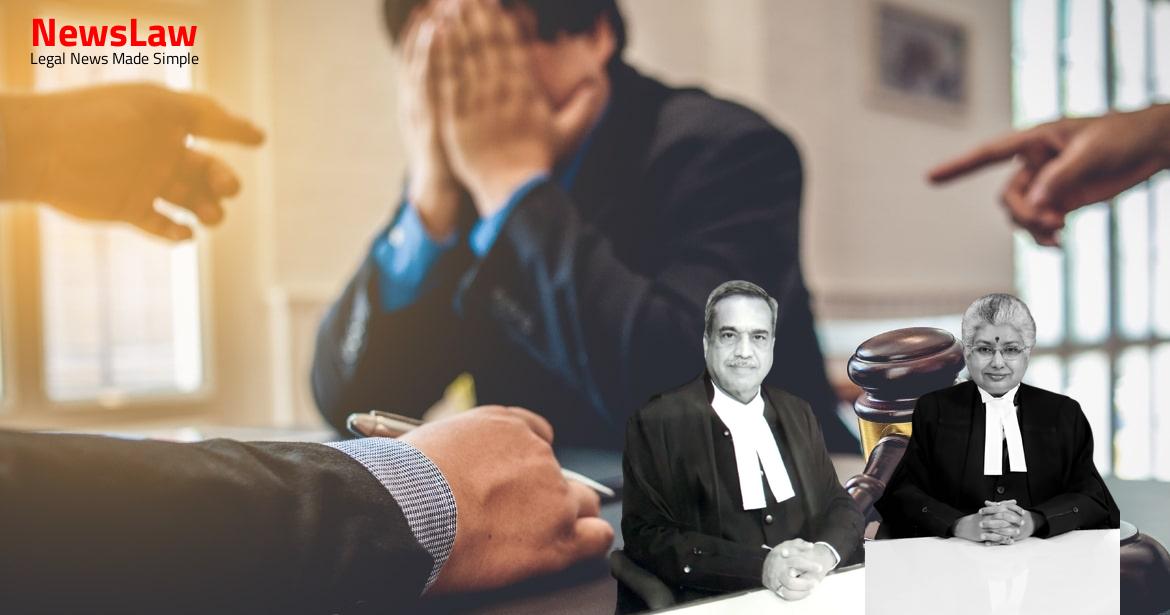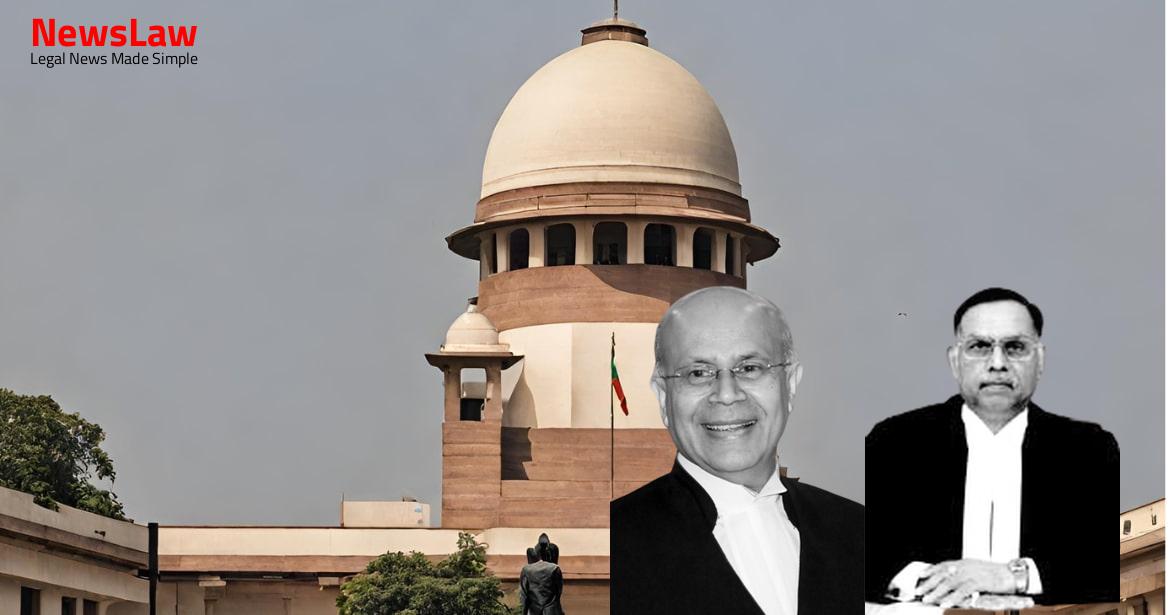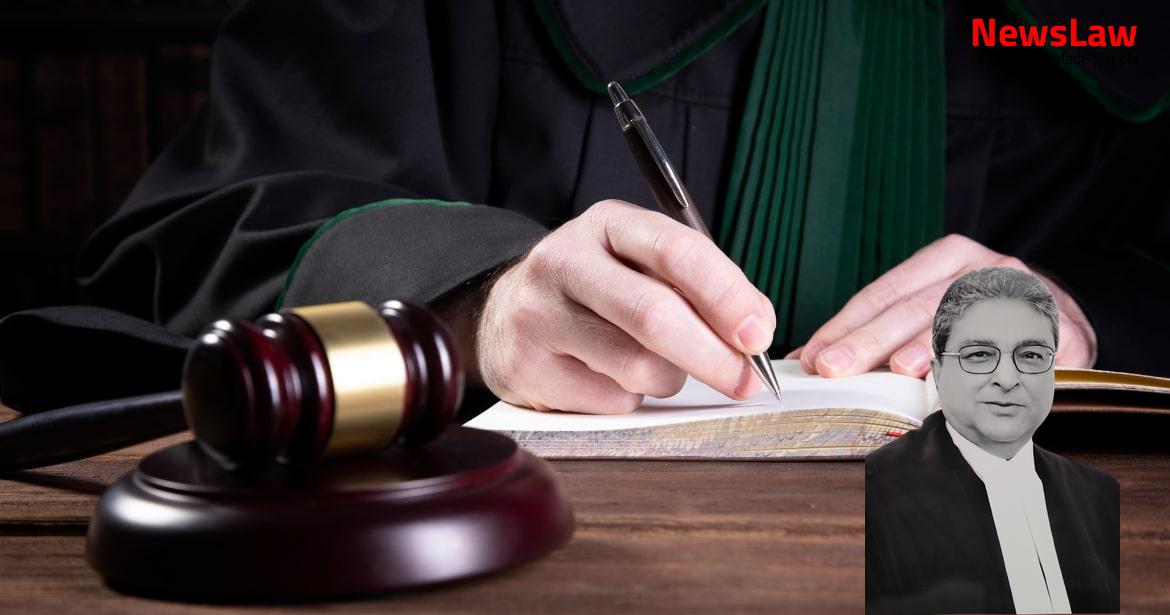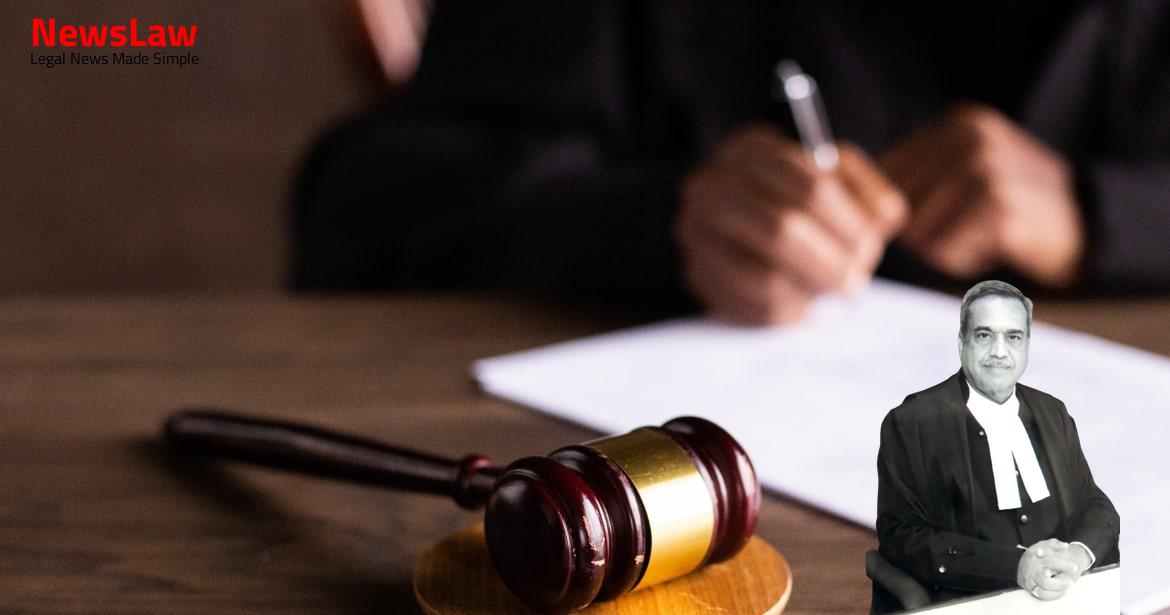The High Court’s detailed legal analysis in a recent case sheds light on the interpretation of rent and tax liability in a landlord-tenant dispute. The court’s decision on the inclusion of municipal tax in the definition of ‘rent’, and its implications under the relevant Acts, is crucial in understanding the legal framework governing such disputes.
Facts
- The Division Bench of the High Court dismissed the appeal and confirmed the order of the learned Single Judge.
- The rent payable by the tenant was determined to be Rs. 10,000 per month, making the Act 1997 applicable.
- The suit under Section 106 of the TP Act was considered impliedly barred due to the provisions of the Act 1997.
- The appellant, who was the original plaintiff and landlord, felt aggrieved and filed an appeal against the decision.
- The appellant terminated the tenancy by issuing notice under Section 106 of the Transfer of Property Act.
- The appellant argued that the rent and taxes would exceed the ceiling limit specified in the Act 1997, making the Act not applicable.
- The respondent tenant filed an application under Order 7 Rule 11 CPC to reject the plaint, citing the applicability of the Act 1997 due to the rent being fixed at Rs. 10,000 per month for commercial premises.
- The High Court dismissed the appeal and confirmed the rejection of the plaint under the Act 1997 provisions.
- The tenancy agreement stated the rent at Rs. 10,000 per month for a showroom in a prime location in Kolkata.
Also Read: Challenging Legal Presumptions in Negotiable Instrument Cases
Issue
- The main issue in question is whether the share of municipal tax due and payable by the tenant should be considered as part of the rent of the premises let out.
- This issue arises from the interpretation of Section 230 of the Act 1980 and Section 5(8) of the Act 1997.
- The key question is whether the share of municipal tax should be included within the expression ‘rent’.
Also Read: Legal Analysis of Admission Irregularities in Educational Institutions
Arguments
- Relying on previous decisions, it is asserted that the tax forms a part of the rent, making the total rent payable exceed Rs. 10,000, rendering Section 3(f)(i) of the Act 1997 applicable.
- Claims that the Act 1997 offers limited protection to tenants and may not be applicable in a suit for eviction under Section 106 of the TP Act.
- Referencing various sections and court decisions, it is argued that the Act 1997 should not be applicable due to the rent exceeding Rs. 10,000 per month, taking into account the automatic increase under Section 18 of the Act 1997.
- Mentions that the Act 1997 specifically saves pending suits under the Act 1956, but applies to agreements made during the tenure of the Act 1956.
- Cites court rulings to support the argument that taxes payable by the tenant form part of the rent, even in agreements made before the Act 1997.
- Opposing views point out that the rent due is Rs. 10,000 per month, including municipal taxes, which exceeds the threshold for Act 1997 applicability.
- The reliance on the decision in the case of Popat and Kotecha Property is discussed.
- The amendment in Section 230 of the Act 1980 and insertion of Section 5(8) of the Act 1997 are explained.
- The rationale behind the amendment regarding liability to pay municipal tax by the tenant is elaborated.
- The amendment was necessary as private landlords previously had no means to recover tax from tenants.
- Under Section 231 of the Act 1980 read with Section 5(8) of the Act 1997, the mechanism for recovery of tax as arrears of rent is clarified.
- Tax liability cannot be considered part of rent unless agreed upon in a contract between the parties.
Also Read: Legal Analysis: Driver Appointment Dispute
Analysis
- The decision being challenged does not support the argument that the tax apportioned can be considered part of the rent.
- Section 18 of the Act 1997 is not applicable to the current case as it pertains to rent exceeding Rs. 10,000 per month.
- The legislative intent in the two Acts, Act 1980 and Act 1997, needs to be harmoniously achieved without conflict.
- The tax burden is aptly apportioned between the property owner and the tenant, sub-tenant, or occupier.
- The owner or lessor is primarily responsible for satisfying the tax demand and can recover it from the occupant.
- The tenant’s share of municipal tax cannot be considered part of the rent but can be recovered as arrears of rent.
- Machinery provisions for tax assessment and recovery primarily involve the owner or lessor.
- The Act empowers the owner to recover the portion of tax paid on behalf of tenants from the tenants themselves.
- The landlord’s obligation to pay taxes does not automatically include the tenant’s share, which is a separate liability.
- Section 18 of the Act 1997, regarding automatic rent increase by 5% every three years, does not apply to cases where rent is fixed by agreement.
- Every tenant is required to pay their share of municipal tax as an occupier of the premises.
- The amount to be paid by each occupier is based on the annual value of the portion of the premises occupied by them relative to the total annual value of the land or building.
- The term ‘occupier’ is defined in the Kolkata Municipal Corporation Act, 1980 or the West Bengal Municipal Act, 1993.
- If a person is supposed to pay property tax and is entitled to recover a sum from an occupier, they have the same rights and remedies as if the sum were rent owed to them by the occupier.
- Section 231 of the Act creates a fiction that tax apportioned on the tenant is treated as rent and recoverable as such.
- The term ‘rent’ is not defined in tenancy law and has been acknowledged by the court in previous cases.
- Tax apportioned on the tenant cannot be considered as part of the rent of the premises, even though it is recoverable in that manner.
- The court rejected the contention that the tax apportioned on the tenant should be treated as part of the rent of the premises.
- Monthly rent due and payable is Rs. 10,000/- per month which is not more than ten thousand rupees.
- High Court correctly held that the Act 1997 is applicable.
- Civil suit filed under Section 106 of the TP Act is impliedly barred.
- High Court rightly rejected the plaint under Order 7 Rule 11 CPC.
Decision
- No order as to costs in the case.
- The present appeals have been dismissed.
- No interference of the Court is necessary.
Case Title: EIH LIMITED Vs. NADIA A VIRJI (2022 INSC 774)
Case Number: C.A. No.-004797-004799 / 2022



